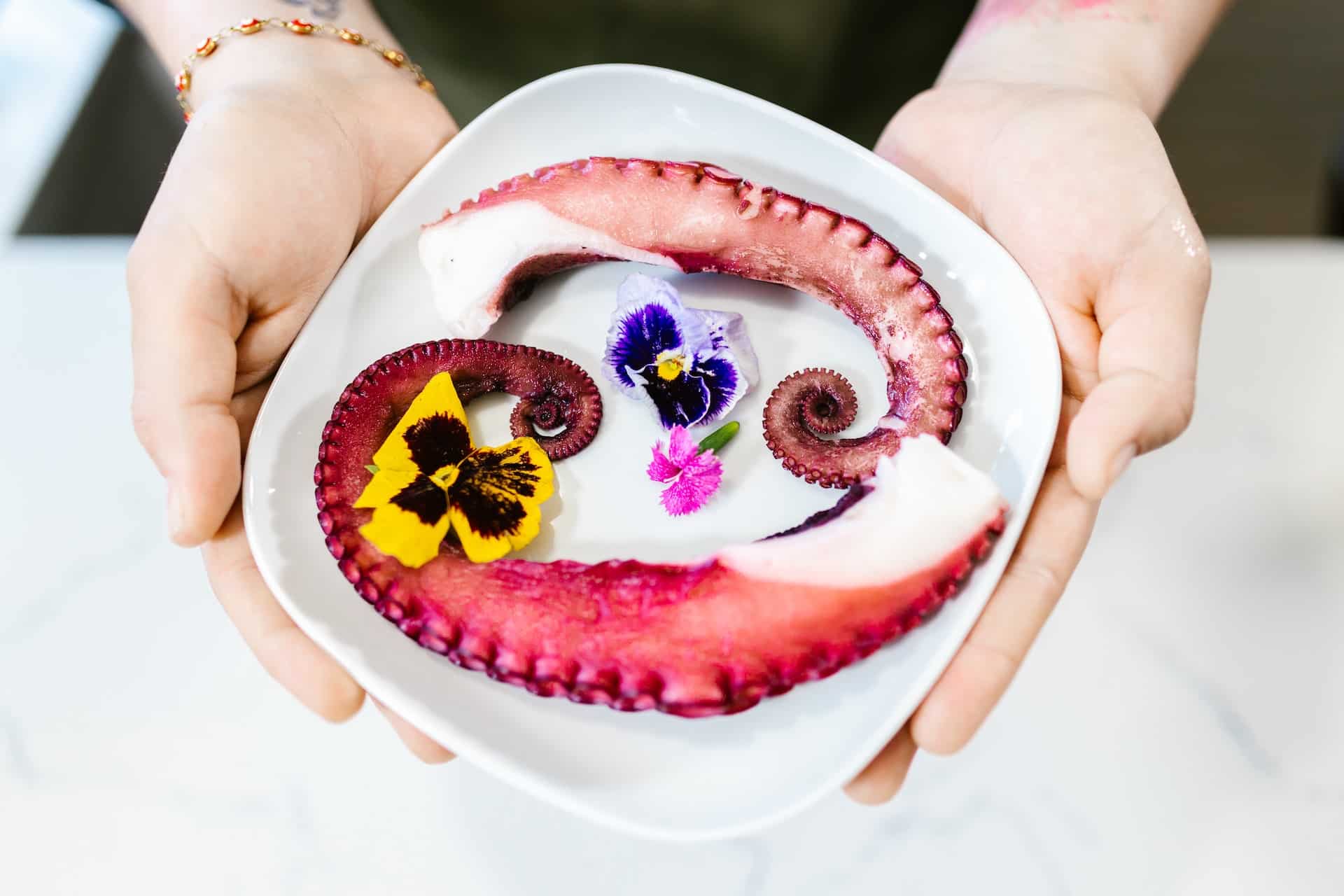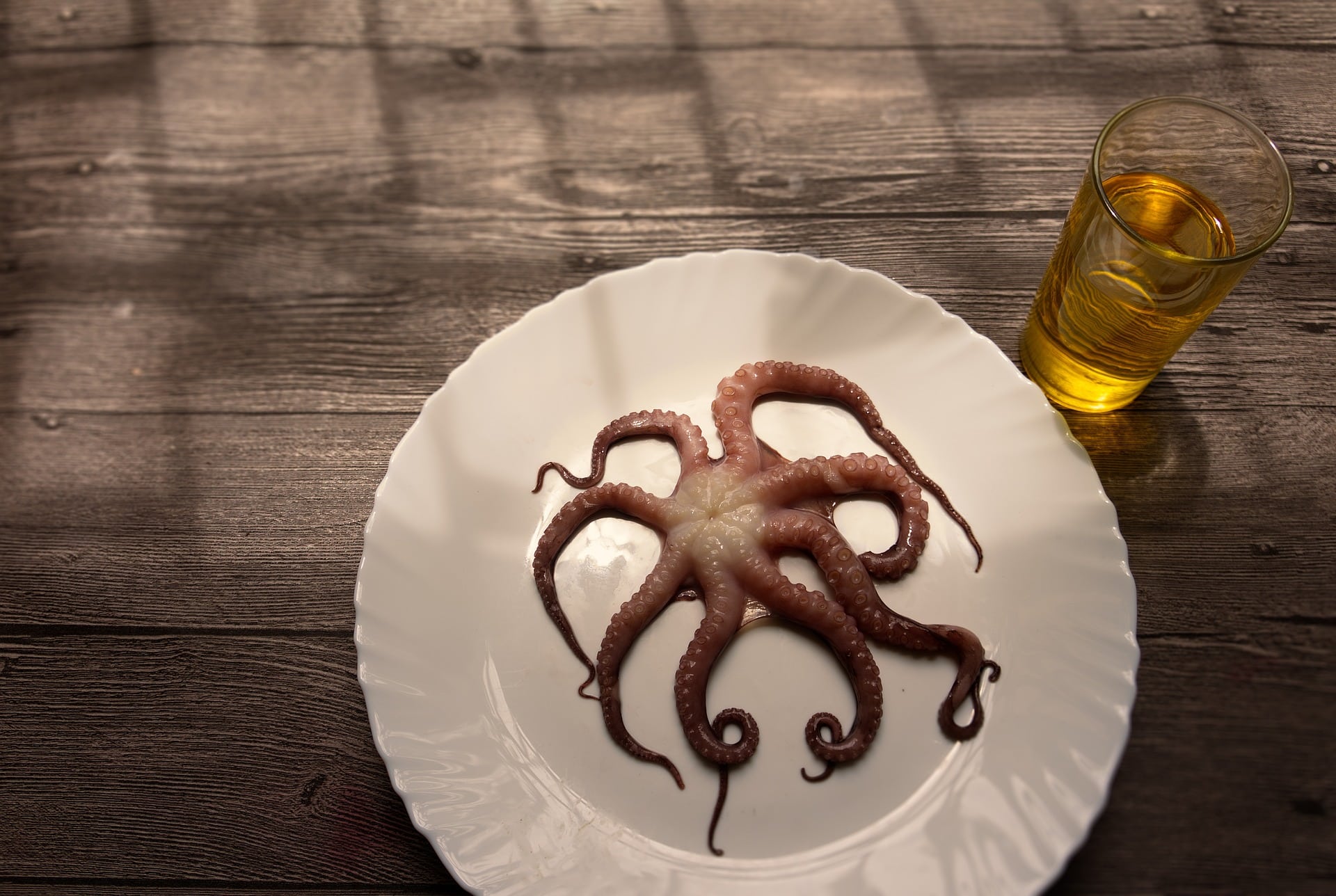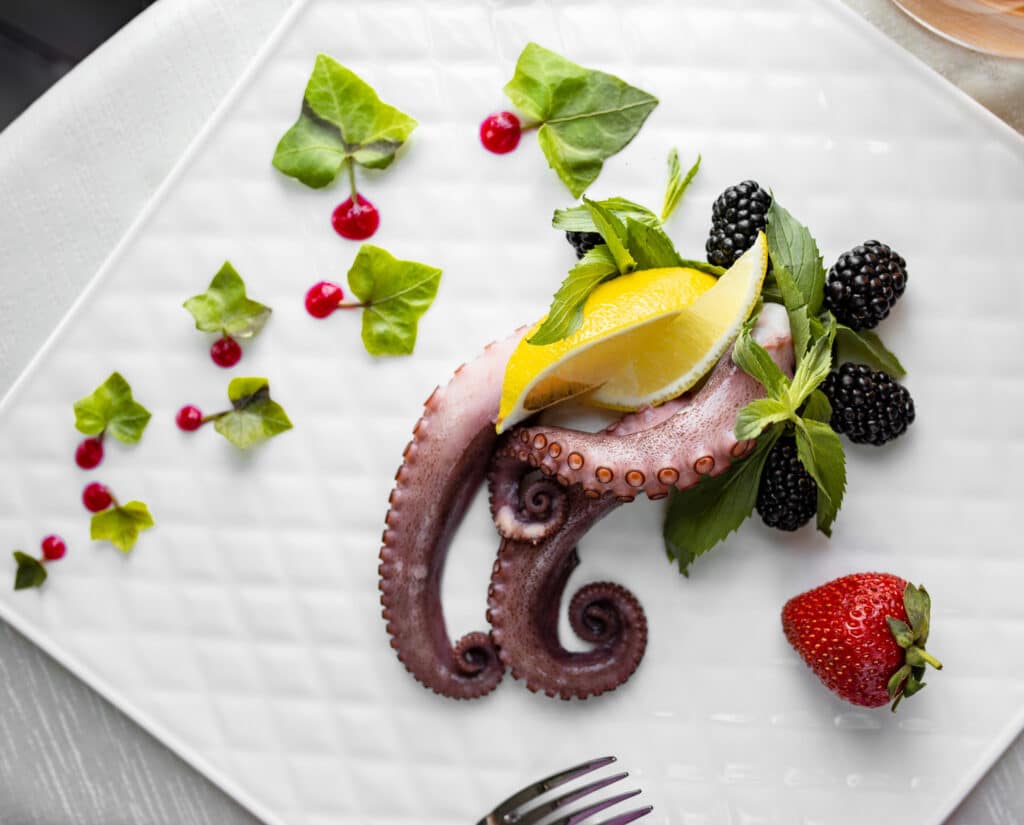Oh yes, by every means, it is! Eating alive octopus is ethically and morally wrong. We live in a hypocritical world! On one hand, we support and fight for animal rights and on the other hand, we are cruel to these creatures. Eating an octopus alive is one of the cruelties that we have adopted so smoothly. Some people entertain themselves in the consumption of live octopuses, presenting a profound moral dilemma. However, others disagree. Today, our topic encircles if eating alive octopus is animal cruelty or not.
The consumption of live octopus has long been a subject of both fascination and controversy. Let’s explore this controversial issue in a more detailed way.
What Does Eating Alive Octopus Symbolize In Culture?
Live octopus consumption has deep roots in certain cultures, including South Korea and Japan. These are the main dishes in their culinary gift. According to them, this dish symbolizes the connection between people and their environment.
For the people of South Korea and Japan, consuming live octopus is not merely about sustenance. It is about preserving their unique cultural identity. This especially represents a continuity of tradition that can be essential for a community’s sense of self.
What Is The Taste Of Alive Octopus?

Eating alive octopus is often described as a delicate taste. The taste of alive octopus is fresh and slightly salty, with a unique flavor you can’t get from cooked octopus. The vibrant flavour gives the taste out of the world. People have slightly salty messages complemented by seafood sweetness.
This blend creates a sensory combination that appeals to adventurous eaters. As you chew, the texture adds another layer of uniqueness. The thrill increases with the tentacles providing a pleasing and slightly chewy resistance. The textural salty interplay with a different taste makes the dish a great adventure. This contributes to the attraction of live octopus for those seeking an extraordinary culinary adventure.
Why Are People Against Eating Alive Octopus?
Well, Octopuses have a nervous system that’s quite different from ours. Unlike humans, their nerve cells are spread within their body. Human beings have nerve cells concentrated in their brain area only. So this makes octopuses quite unique as the brain does not control their body parts but they are the brain themselves. Every limb has its own intelligence.
So how eating live octopus is not cruelty? Every limb doesn’t only feel sensation but also pain. So technically it’s abuse to life. Torturing an octopus for the sake of pleasure is insanity. Giving alive creatures, physical and emotional distress is so unethical and requires a lot of attention and regulation.
Overfishing And Unsustainable Techniques

More demands cause higher supply. Eating alive octopus will make suppliers hunt for more. The rate of fishing exceeds their natural growth and multiplication rate. This will not only cause harm to octopus species but can also disrupt ocean life, destroying the natural balance.
Moreover, capturing alive octopuses frequently can have severe environmental consequences. Two standard methods, trawling and trap usage, raise particular concerns. Trawling is when they put large nets on ocean beds to catch octopuses. Now not only octopuses are caught but other marine life gets disturbed too. Sea habitat is delicate and it can get damaged by such practices.
The use of traps, designed to target octopuses, often unintentionally captures other non-target species, including juvenile fish and marine creatures. This disturbs the sea habitat and can damage the balance and harmony of the natural ecosystem.
Health And Safety Risks
Eating alive octopuses can be risky and unhealthy to consume.
- The tentacles continue to move even after the octopus is removed from the water. Moving tentacles may be sensational to eat but they have a risk of choking hazard. Eating an alive octopus can be dangerous for both the animal and the consumer.
- Don’t expect full submission here. Octopuses are wild creatures. They can bite back as a survival instinct.
- Improper cleaning and cooking methods can lead to foodborne illnesses.
- Furthermore, the octopus may have ingested a poisoned creature, which could pose a risk.
- Seafood allergies are common among many people.
How To Promote Ethical Practices In Octopus Consumption?
- For start, try not to eat alive octopus. Use methods that cause less suffering to these poor creatures. Putting them in boiling water or cutting them alive is wrong on so many ethical and moral levels.
- Encourage the selection of seafood options that are attached to sustainable fishing practices. However, every single person should contribute to the preservation of octopus populations and the health of marine ecosystems.
- Be a part of a community that supports and raises awareness about animal cruelty. People need to know that hunting and consuming the creature alive just for the sake of pleasure is no fun.
- Be kind and compassionate, not only to humans but to this nature and it will reward you in other ways.
What Is The Best Way To Eat Alive Octopus?

Well, we told you loud and clear that morally eating alive octopus is not right but the world is crazy and it is what it is. If you still want to get the experience of eating octopus, we suggest trying these options to soothe yourself.
-
Sashimi or Sushi
Enjoy octopus as sashimi or sushi after it has been adequately cleaned and prepared by professional chefs. Sliced octopus can be served raw and is safe to eat when handled by experienced professionals.
-
Cooked Octopus
Octopus can be boiled, grilled, or cooked in various ways to achieve a tender and flavorful result. Cooking ensures the safety of the dish and eliminates any ethical concerns related to consuming live animals.
-
Ceviche
Ceviche is especially for those who still want that “rawness” of octopus. Chefs marinate octopus meat in citrus juices for a fresh and tangy flavour. This method “cooks” the octopus without the need for heat.
Overall, This is a topic for debate as we see the world divided. Some people see it as cultural and traditional practice whereas others see it as animal cruelty and inhumane practice. Here, we should find a middle ground where our culinary adventures can be in check. In the end, without any doubt, it is a fact that eating an alive Octopus is indeed animal cruelty.


